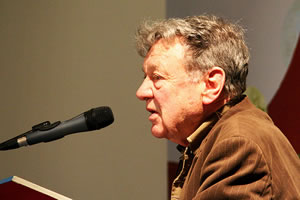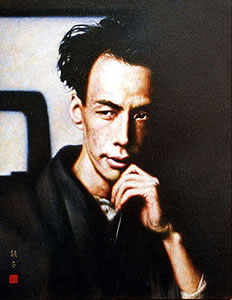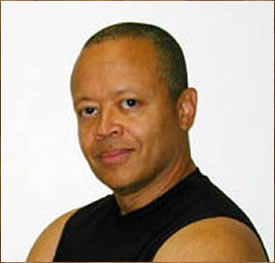De Nederlandse dichter, vertaler en journalist Jan Eijkelboom werd op 1 maart 1926 in Ridderkerk geboren. Zie ook mijn blog van 1 maart 2008 en ook mijn blog van 28 februari 2008 en ook mijn blog van 1 maart 2009. en ook mijn blog van 1 maart 2010.
Schilderij, Duits, 19de eeuw
Dit is de liefde:
stilstand van de tijd.
De jongeling die met het meisje
in suizend onbewegen
de steile rots afspringt.
Tussen Teutoonse sparren heeft,
onhoorbaar tandenknarsend
boven een stalen baard,
de man te paard
– rivaal of vader –
het zwaard vergeefs ontbloot.
Zie ook de tanden van de honden
die doodstil grommen aan de rand.
Tanden en zwaard bereiken nooit het paar.
Het paar haalt nooit de grond.
Het blijft ontheven in een val
die op een dans gelijkt,
zo losjes houden zij elkander
bij de hand en bij
de smalle leest.
Dit is de tijd die blijft,
omdat er niets beweegt.
Slikkerveer
Hier hoorde mijn moeder in negentien vijf
het drinkwater aan komen ruisen
door de net aangelegde buizen.
Hier zag ik tegen de ochtendzon
mijn grootvader thuiskomen van de Noord
die hij heen-en-terug was overgezwommen
om zijn zestigste verjaardag te vieren.
Hier hoorde ik als jongen
een uiteenvallende briket ritselen
in het fornuis en dacht:
het klinkt als zilverpapier
dat terug tracht te komen
uit zijn verfrommeling.
Ik borg dat op voor later –
voor nu.
Voor wat hoort wat
Voor wat hoort wat
Een kind vraagt nooit
waarom, waartoe het toch
op aarde werd geworpen.
Daarom en niet omdat
het hulpeloos zou zijn
verzorgen wij het trouw,
vereren het als god.
Tot het de dood ontdekt
en een der onzen wordt.

Jan Eijkelboom (1 maart 1926 – 28 februari 2008)
Lees verder “Jan Eijkelboom, Franzobel, Jim Crace, Franz Hohler, Jacques Chessex, Lytton Strachey”


